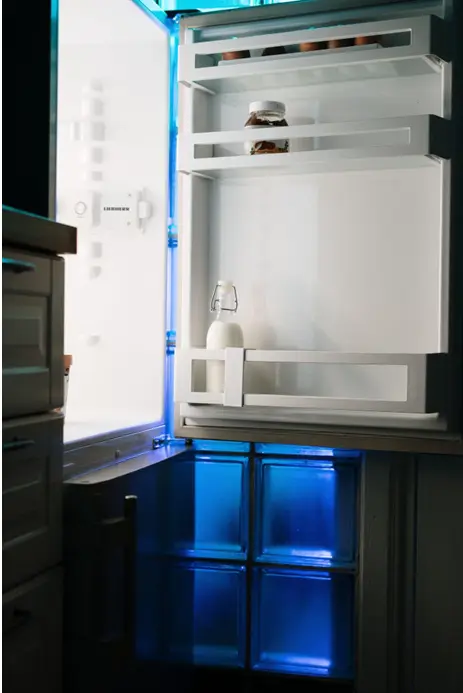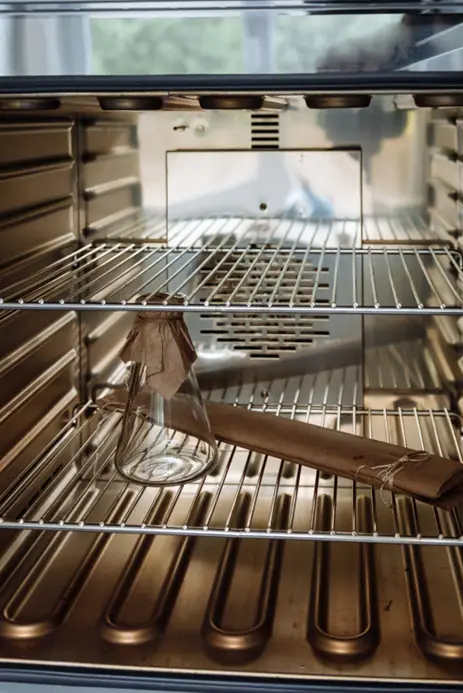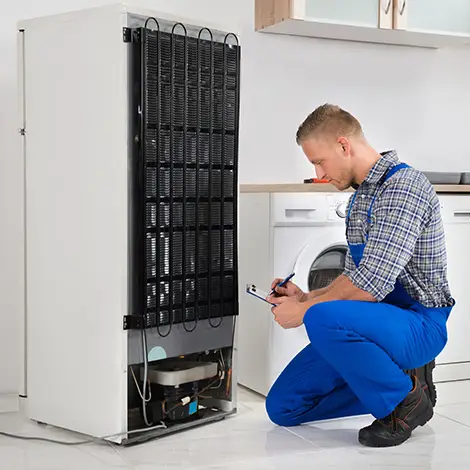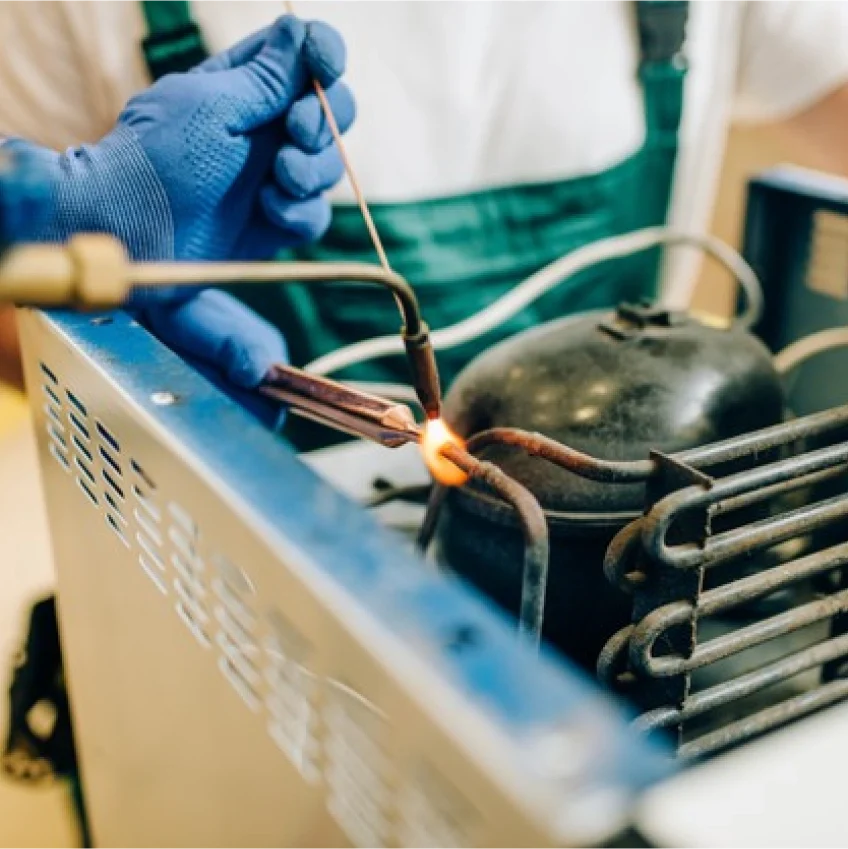
- Author Name: Anatoli Didenco
- Date: Nov, 15 2023
|
Table of Contents |
In the heart of every home, the refrigerator stands as a silent sentinel of freshness, tirelessly preserving our food and contributing to the rhythm of our daily lives. However, unlocking the full potential of this indispensable appliance requires a keen understanding of the myriad factors that can influence its lifespan. From the quality of construction to the frequency of door openings, each aspect plays a role in determining how long your refrigerator will reliably serve your household. Join us as we delve into the essential elements that impact your refrigerator's lifespan, offering insights and practical tips to ensure it remains a steadfast companion for years to come.
Manufacturer and Fridge Quality
The manufacturer and the inherent quality of your fridge are paramount to its lifespan. Opting for a reputable brand with a track record of quality manufacturing can significantly impact the longevity of your appliance. Top-tier manufacturers invest in durable materials and cutting-edge technology, ensuring your refrigerator stands the test of time. When selecting a fridge, consider user reviews and industry ratings to gauge the manufacturer's commitment to quality. A well-constructed fridge not only enhances its durability but also contributes to energy efficiency, saving you money in the long run. Choosing wisely at the outset sets the stage for a resilient and long-lasting refrigerator.
Regular Maintenance
Regular maintenance is the unsung hero in extending your refrigerator's lifespan. Just as your car needs routine check-ups, your fridge benefits from a little TLC. Cleaning condenser coils, checking and replacing water filters, and ensuring proper ventilation are simple yet powerful steps. This regular upkeep prevents dust and debris buildup, keeping your refrigerator running efficiently. Periodic maintenance also includes inspecting door seals for tightness, ensuring the thermostat is accurate, and cleaning the interior to prevent odors. By incorporating these straightforward tasks into your routine, you're not just maintaining a refrigerator; you're investing in its longevity and sustained performance.
Temperature Settings
The temperature settings of your refrigerator wield a considerable influence over its lifespan. Operating within the recommended temperature range is crucial for optimal performance. Keeping the fridge too cold can strain the compressor, while a warmer setting may jeopardize food safety. Find the Goldilocks zone, typically around 37°F (3°C), for the refrigerator compartment and 0°F (-18°C) for the freezer. This not only ensures your food stays fresh but also minimizes the workload on your appliance. By dialing in the right temperature, you're not just preserving perishables; you're extending the life of your refrigerator and enhancing its overall efficiency.

Location and Ventilation
The location and ventilation of your refrigerator are vital factors influencing its lifespan. Placing the appliance in a well-ventilated area ensures proper heat dissipation, preventing the compressor from overworking. Avoid tight spaces or direct sunlight, as excessive heat can compromise efficiency. Allow sufficient space around the fridge for air circulation, reducing strain on the motor. Good ventilation contributes to energy efficiency and a longer lifespan. Optimal placement also minimizes the risk of overheating and promotes consistent cooling throughout the appliance. By giving your refrigerator room to breathe, you're creating an environment that fosters longevity and peak performance.
Frequency of Door Openings
The frequency of door openings is a subtle yet impactful factor affecting your refrigerator's lifespan. Every time you open the door, warm air infiltrates, triggering the compressor to kick in and cool the interior. The more frequent the openings, the harder the appliance works. Minimize unnecessary door access to preserve the internal temperature and reduce strain on the compressor. Make a habit of retrieving multiple items at once and ensuring the door is sealed properly. By moderating the frequency of door openings, you're not just saving energy; you're promoting a longer, more efficient life for your refrigerator.
Quality of Construction
The quality of construction is the bedrock of your refrigerator's durability. Choosing an appliance crafted with top-notch materials and robust construction sets the stage for an extended lifespan. Look for sturdy shelves, well-built drawers, and a solid exterior that can withstand the demands of daily use. High-quality construction not only ensures the refrigerator's longevity but also contributes to its overall reliability. When the foundation is solid, the appliance is better equipped to handle the wear and tear of everyday life, promising you a refrigerator that stands strong for years to come. Choose quality, and you're investing in endurance and peace of mind.

Proper Loading and Organization
Proper loading and organization within your refrigerator are keys to its sustained efficiency and lifespan. Thoughtful arrangement minimizes the time the door is open, reducing temperature fluctuations and workload on the compressor. Keep commonly used items at eye level for quick access and ensure adequate space between items for optimal airflow. Avoid overloading shelves, allowing cold air to circulate freely. By maintaining an organized interior, you're not just creating a visually pleasing fridge; you're enhancing its functionality and easing the strain on critical components. A well-organized refrigerator is a recipe for longevity and hassle-free operation.
Power Surges and Electrical Issues
Guarding your refrigerator against power surges and electrical issues is paramount for its longevity. Sudden power spikes can wreak havoc on the appliance's sensitive electronic components, potentially shortening its lifespan. Invest in surge protectors and ensure a stable power supply to shield your refrigerator from voltage fluctuations. Faulty wiring or electrical issues within your home can also impact the appliance. Regularly check the power cord and outlets for signs of wear or damage. By prioritizing electrical stability and protection, you're not just safeguarding your refrigerator; you're fortifying it against potential threats, ensuring a reliable and extended service life.
Climate Conditions
Climate conditions play a role in determining your refrigerator's lifespan. Extreme temperatures, whether excessively hot or cold, can impact the appliance's efficiency and overall performance. In extremely hot climates, the refrigerator may need to work harder to maintain the desired temperature, potentially accelerating wear on components. Similarly, in extremely cold conditions, the compressor may struggle to function optimally. It's crucial to position your refrigerator in a climate-controlled area whenever possible. By considering and moderating the climate conditions surrounding your appliance, you contribute to its sustained efficiency and durability, ensuring it remains a reliable part of your home for years to come.
Age of the Appliance
The age of your refrigerator is a fundamental factor influencing its lifespan. Over time, wear and tear naturally occur, impacting the efficiency of components like the compressor and coils. As your refrigerator ages, the likelihood of mechanical issues increases. Modern appliances often feature technological advancements that enhance energy efficiency and overall performance. If your refrigerator is approaching a decade or more in age, consider an upgrade to a newer model. While routine maintenance can extend the lifespan, the age of the appliance remains a key consideration in evaluating its longevity and efficiency.

Type of Refrigerator (e.g., top freezer, bottom freezer, side-by-side)
The type of refrigerator you choose significantly influences its lifespan. Different configurations, such as top freezer, bottom freezer, or side-by-side models, have distinct designs and mechanisms that impact performance and longevity. Each type comes with its set of advantages and considerations.
For example, top freezer models tend to be energy-efficient, while bottom freezers provide easier access to fresh food. Side-by-side refrigerators offer convenient organization but may have smaller compartments.
Understanding the characteristics of the refrigerator type you opt for is essential for maximizing its lifespan. Consider your preferences, lifestyle, and the specific needs of your household when selecting a refrigerator type to ensure it aligns with your usage patterns and contributes to long-term reliability.
Usage Patterns
The usage patterns of your refrigerator play a pivotal role in determining its lifespan. How often you open the doors, the amount of food stored, and the consistency of temperature settings all influence the wear and tear on the appliance. If you frequently store large quantities of warm food, the refrigerator has to work harder to maintain the desired temperature, potentially impacting its longevity.
Understanding your household's usage patterns and adjusting habits can contribute to the refrigerator's efficiency and lifespan. Be mindful of door openings, avoid overloading, and maintain consistent temperature settings. By aligning your usage patterns with best practices, you're not just optimizing efficiency; you're actively contributing to a longer and more reliable lifespan for your refrigerator.
Door Seal Integrity
The integrity of the door seal is a critical factor in maintaining your refrigerator's efficiency and lifespan. A tight and properly sealed door prevents cold air from escaping and warm air from infiltrating, minimizing the workload on the compressor. Over time, the door gasket may wear out or accumulate debris, compromising its effectiveness.
Regularly inspect the door seal for any signs of damage, wear, or contamination. Ensure a proper seal by cleaning the gasket and, if necessary, replacing it promptly. By prioritizing door seal integrity, you're not just preserving energy; you're enhancing the overall performance and lifespan of your refrigerator, ensuring it remains a reliable appliance in your kitchen.
Proximity to Heat Sources
The proximity of your refrigerator to heat sources is a crucial consideration for its longevity. Placing the appliance near heat-producing sources, such as ovens, stovetops, or direct sunlight, can lead to increased temperatures around the refrigerator. This extra heat forces the compressor to work harder to maintain the desired internal temperature, putting additional stress on the appliance.

To ensure optimal performance and an extended lifespan, position your refrigerator away from heat sources. Maintain a distance that allows for proper ventilation and prevents unnecessary heat buildup. By keeping your refrigerator cool, you're actively contributing to its efficiency and overall durability.
Leveling and Stability
The leveling and stability of your refrigerator are key factors in its performance and lifespan. Ensuring that your refrigerator is properly leveled and stable on the floor is essential for optimal functionality. An uneven or unstable appliance can cause strain on the compressor and other components, potentially leading to premature wear.
Regularly check and adjust the leveling feet of your refrigerator to ensure it sits firmly on the floor. This not only contributes to the appliance's stability but also promotes proper door sealing and temperature control. By maintaining a level and stable foundation, you're enhancing the longevity and efficiency of your refrigerator, ensuring it operates smoothly for years to come.
Appliance Overloading
Appliance overloading, or exceeding the recommended capacity of your refrigerator, is a factor that can impact its lifespan. Overloading the fridge with an excessive amount of food and items obstructs proper air circulation, forcing the appliance to work harder to maintain the desired temperature.
To optimize the lifespan of your refrigerator, adhere to the recommended capacity guidelines provided by the manufacturer. Avoid overcrowding shelves and allow for proper air circulation within the appliance. By preventing overloading, you're not just promoting efficient cooling; you're also reducing the strain on the refrigerator's components, contributing to a longer and more reliable service life.
Response to Repairs and Maintenance
The response to repairs and maintenance is a critical factor in determining the lifespan of your refrigerator. Prompt attention to repairs and regular maintenance can significantly impact the appliance's longevity. Addressing issues quickly, whether it's a malfunctioning component or a worn-out seal, prevents further damage and ensures optimal performance.
Regular maintenance, including cleaning coils, checking door seals, and inspecting for signs of wear, helps identify potential problems before they escalate. A proactive approach to repairs and maintenance not only extends the lifespan of your refrigerator but also saves you from costly repairs in the long run. By staying attentive and responsive, you're investing in the sustained efficiency and reliability of your appliance.
User Care and Handling
User care and handling are pivotal factors influencing the lifespan of your refrigerator. How you use and care for the appliance can significantly impact its efficiency and overall durability. Adhering to proper usage guidelines, such as avoiding slamming the doors and refraining from placing hot items directly into the fridge, contributes to its longevity.

Regularly cleaning the interior, defrosting when necessary, and following manufacturer recommendations for maintenance are crucial aspects of user care. Additionally, educating household members on best practices ensures everyone contributes to the appliance's well-being. By adopting careful and considerate user habits, you're not just preserving the aesthetic appeal of your refrigerator; you're actively participating in its long-term reliability and efficient operation.
In the dance of daily life, our refrigerators play a vital role, quietly humming in the background to keep our food fresh and our households running smoothly. As we explored the diverse factors affecting the lifespan of these indispensable appliances, it became clear that mindful care and attention are the keys to unlocking their full potential. From choosing a reputable brand to conscientious user habits, each consideration contributes to the efficiency and longevity of your refrigerator. By incorporating these insights into your daily routine, you're not just extending the lifespan of an appliance; you're investing in the seamless operation of a kitchen companion that stands the test of time. Cheers to a refrigerator that keeps things cool, not just today, but for countless tomorrows.



